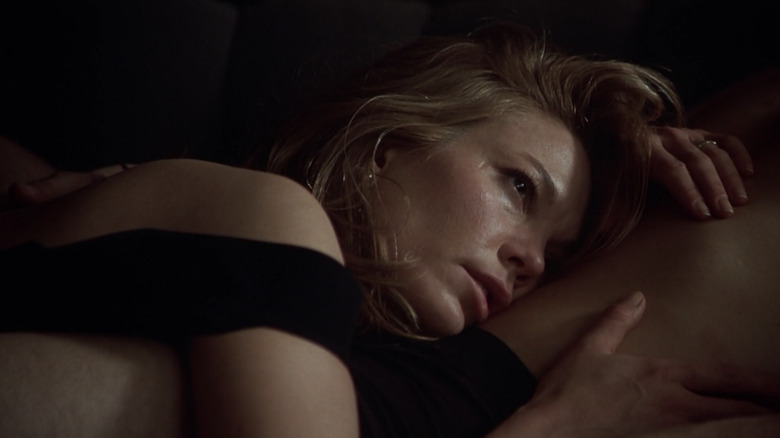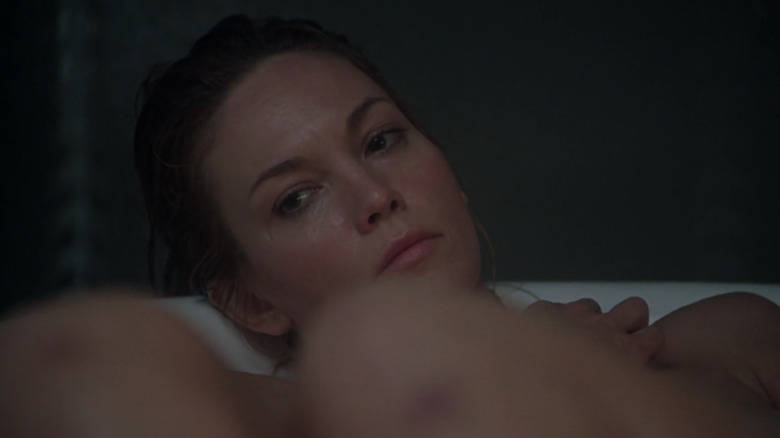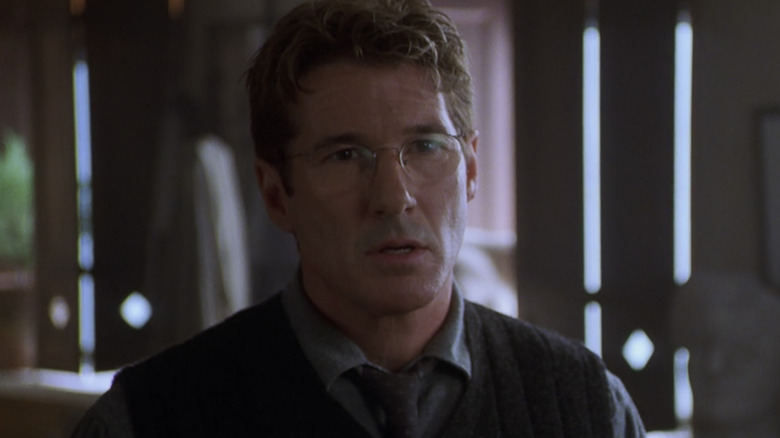The Daily Stream: Unfaithful Shows The Mature Side Of The Erotic Thriller
(Welcome to The Daily Stream, an ongoing series in which the /Film team shares what they've been watching, why it's worth checking out, and where you can stream it.)
Movie: "Unfaithful" (2002)
Where You Can Stream It: Hulu, Tubi
The Pitch: "Deep Water," the first film from Adrian Lyne in 20 years, hits Hulu this week. Had Lyne not come back to directing, he would have ended on a high note with his best film, the erotic thriller "Unfaithful." For a genre that could so easily drift into the trash (for both good and bad), "Unfaithful" shows how a story about sex, guilt, jealousy, and violence can just as easily be a thoughtful, mature piece that connects to the true desires of everyday people. It transforms the lurid eye of its predecessors into a sensual one. Bolstered by an incredible, Oscar-nominated performance from Diane Lane, "Unfaithful" is the perfect mid-budget film for adults that we have been so deprived of for the last decade.
Why it's essential viewing
Eroticism is so rarely depicted on screen anymore, particularly in mainstream, Hollywood cinema. The target audience for any movie with a decent budget has to appeal to as wide of a range as humanly possible, which now is just IP-driven franchise fare. Ultimately, the goal is to figure out a way to make films for children through the lens of an adult. Chances are pretty strong that a film hoping to reach children will not feature grown adults engaging in complicated sexual relationships. Buildings being destroyed, people getting blown up, and mayhem on a mass scale are all fine, but sex ... that's just too sensitive, despite it being a part of people's daily lives. Sex used to be a frequent part of mainstream cinema, often to the point where a lot of it was done for pure exploitation purposes. The pendulum swing in that direction probably accounts for the current swing to sexlessness.
"Unfaithful" always puts the emotion of the sex before anything else. The sex scenes between Diane Lane's Connie Sumner and the handsome bookseller she is having an affair with, played by Olivier Martinez, are full of passion. Very little nudity is actually in the film. Adrian Lyne does not focus so much on their bodies. Their faces, their connection ... that's where the actual juice is. We should be feeling the heat of the relationship rather than being turned on by it as an outside observer. This technique puts us squarely inside Connie's head. So, not only do we feel the intense draw to this man, but we also feel the guilt and shame that comes with it through every scene she has with her husband, terrifically played by Richard Gere. That intense emotionality transfers over to Gere's character when he becomes more wrapped up in the story in a way I won't spoil here. Few films, especially ones made for a large audience, treat sex as maturely as "Unfaithful," which makes it stand head and shoulders above its contemporaries like "Original Sin" starring Antonio Banderas and Angelina Jolie.
There was a time not too long ago when you could make an R-rated film, aimed explicitly at adults, and put some serious money behind it. At the box office, it would make a pretty decent return, and the fate of a movie studio would not live and die by its merchandising or franchise potential. "Unfaithful" had a budget of $50 million and grossed $119 million worldwide. This was all it needed to do. Having a film this small in scope with that sized budget allowed for time and space to create a film that was intimate without being claustrophobic. They could close off and take control of a New York City street without it completely destroying their budget for the whole production. It allowed the film to exist in the world, rather than just cloistered off interiors. Nothing feels compromised. Adrian Lyne had a vision for "Unfaithful" and was given the time and resources to execute it. It is so rewarding to see an adult drama like that nowadays.
The evolution of Adrian Lyne
Adrian Lyne made his bones on flashy, sexy movies. Nearly all of his films helped birth what we might think of as the MTV aesthetic. With "Flashdance" and "9 1/2 Weeks," he indulged entirely in those more exploitative tendencies of cinema. He came up making television commercials before making films, and it shows in his early work. Every shot is designed to maximize the thrill of seeing people like Jennifer Beals and Kim Basinger glisten and gleam as the most desirable people ever put to celluloid. Light blasts through windows and clouds of smoke choke every room. The focus is on legs, hips, shoulders, and watching bodies move seductively. While he isn't asking his leading ladies to take off their clothes in every scene, there is no doubt that Lyne is objectifying these women.
Lyne then started implementing those maximalist tendencies towards creating terrifying atmospheres in films like "Fatal Attraction" and "Jacob's Ladder." When he swung back over to making straightforward erotic dramas after that, with "Indecent Proposal" and his remake of "Lolita," the impact of his flair had started waning. The harsh blue backlighting that was novel back in his early work was now passé. He needed to evolve, and he did just that.
The lighting in "Unfaithful" is nearly all-natural, whether that be from the sun or just whatever lights happen to be in any given room. This film does not exist in a world of sensory overload. While that can be incredibly fun, it can distract from a story of murky morality. It has its operatic moments, such as the violent wind storm that opens the film which brings together Diane Lane and Olivier Martinez's characters for the first time, but these moments mirror the high emotional beats of the scene. Lyne can do a fast push-in on Diane Lane's face when she first decides to sleep with Martinez because the decision calls for it. In his other work, every scene is pitched at that level, which sometimes flattens the drama.
By the time Adrian Lyne made "Unfaithful," he had matured as a filmmaker. More precisely, he matured as a storyteller. He always had the visual panache, but the full understanding of the material occasionally eluded him. By this point, Lyne had a greater command of character, motivation, and stakes, and he could now perfectly balance every element of the filmmaking process. "Unfaithful" features an enormously ambiguous ending that I don't think he would have gone for in his earlier years. It takes a certain amount of confidence in your ability to convey complicated people on screen to effectively land an ending like that, and Lyne achieves it with aplomb. "Fatal Attraction" may be the more explosive picture, but "Unfaithful" is the more impactful one. That maturity is what, for me, makes "Unfaithful" Adrian Lyne's unquestionable masterpiece. Check it out on Hulu, where you will also be able to watch his new film "Deep Water."


